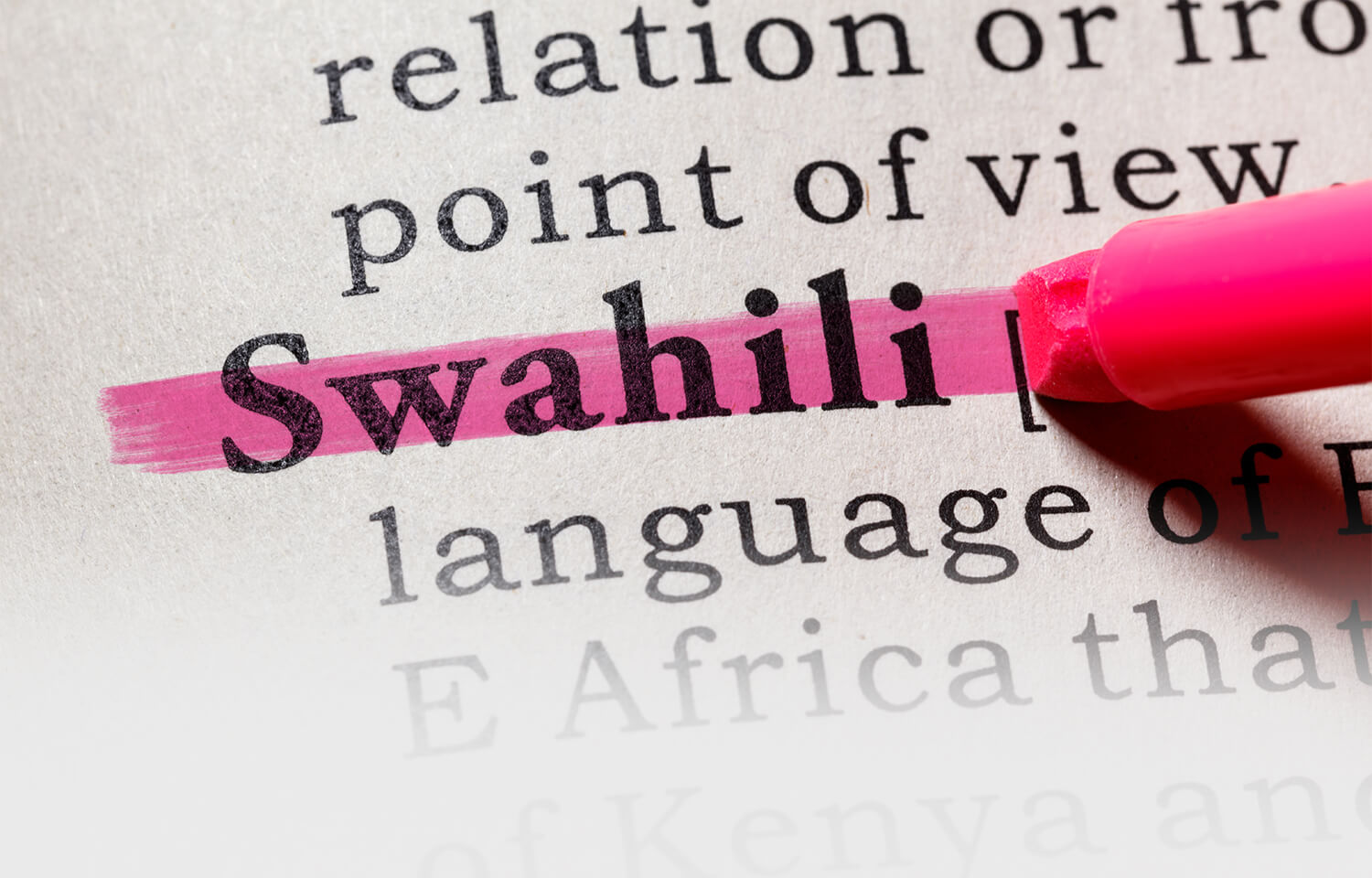Which Countries Speak Swahili?

Swahili or Kiswahili, as known by its native speakers, is a Bantu language spoken by over 100 million people in Africa. It is a rich mix of languages with roots in Arabic and Bantu. Swahili is influenced by English, French, Persian, Portuguese, and German because of commercial interactions with countries that speak these languages.
The Swahili language appeared for the first time in 1711 and was written using Arabic script in the region of Kilwa, which is known now as Tanzania.
Swahili has many dialects, even within one African country. Some dialects are hardly understood by other Swahili speakers.
The word “Swahili” comes from the Arabic word “Sahil”, which means coast. ‘Ki’ at the beginning of Kiswahili means the coastal language
In fact, the Swahili language is considered one of the easiest languages for English speakers to learn as it has straightforward grammar and logical spelling. Besides that, you will find many words in Swahili influenced by the English language like penseli (pencil) and televisheni (television).
Why it is important to learn Swahili?
Swahili plays an important role in the education system in several African countries. For example, Uganda made Swahili an obligatory subject in primary schools in 1992. It is also a compulsory subject in Kenyan schools and now Swahili is the latest language to be taught in universities in South Africa. You can also now find several international media outlets that have various Swahili programs, like BBC Swahili.
As a result of the growing economy of East Africa with natural resources like oil and gas and huge tourism potential, it so important to learn the Swahili language, especially if you are looking for an investment opportunity or building a business. Learning Swahili is an incredible way to meet new people and make new friends in Africa.
Where is Swahili spoken?
Swahili is considered a lingua franca in the African Great Lakes region and other parts of eastern and southeastern Africa. It is spoken by about 15 million native speakers, most of whom are concentrated in Tanzania, where it is a national language. However, Tanzania has fewer than 50% of all Swahili speakers. There are large groups of Swahili speakers in three other countries where it’s also a national language: Kenya, Uganda, and the Democratic Republic of the Congo. Also, you can find speakers of the Swahili language in Mozambique, Rwanda, Malawi, Burundi, Uganda, and North Zambia, but in smaller groups.
Where is Swahili considered an official language?
Country #1: Tanzania
As a result of the diversity of people living within the boundaries of Tanzania, having Swahili as a national language provides the country with a strong sense of national identity. It is interesting to note that in Tanzania all primary school education is taught in Swahili.
As the national language, Swahili is the most widely spoken language in Tanzania but Tanzania is considered a multilingual country as besides Swahili, English is the second official language, but you only find it in the larger towns and tourist areas.
Country #2: Kenya
JAMPO is one of the common words you will hear people speak throughout Kenya. This is the simplest Swahili greeting and the first word learned by visitors in Kenya. Today, Swahili is the national language of Kenya besides English and it is still spoken along the Kenyan coast, especially in Zanzibar.
Country #3: Uganda
There are at least 40 languages in Uganda but if Swahili and English are official languages. With about 34 million speakers, Swahili is used to unite all people in Uganda and now is a mandatory subject in secondary schools. However, Swahili doesn’t have official status as Luganda is the language spoken by most people in Uganda with over 4 million speakers, while only 313,000 Swahili native speakers live in Uganda.
Country #4: The Democratic Republic of the Congo
French is the official language of Congo, but you can also find more official languages spoken by Congo people, and one of these is Swahili.
Swahili is now used on radio and television shows in Congo. Also, it is widely spoken in five of Congo’s 11 provinces. Congolese Swahili uses a mixture of Swahili, Lingala, and French. For example, if you want to say “How are you” in Congolese Swahili, it will be “iko bien”, where bien is a French word meaning good.
Conclusion
It is interesting to know that many languages rise from under the radar to become globally important. Ten years ago, nobody would have even considered learning the Chinese language but now it’s a crucial global language. The same is happening with the Swahili language, which has the potential to become a global language and that is why anyone interested in doing business in Africa should pay attention to it now.
If you need to translate your business document to Swahili or any African Language Services just contact us: sales@translationpartner.com
